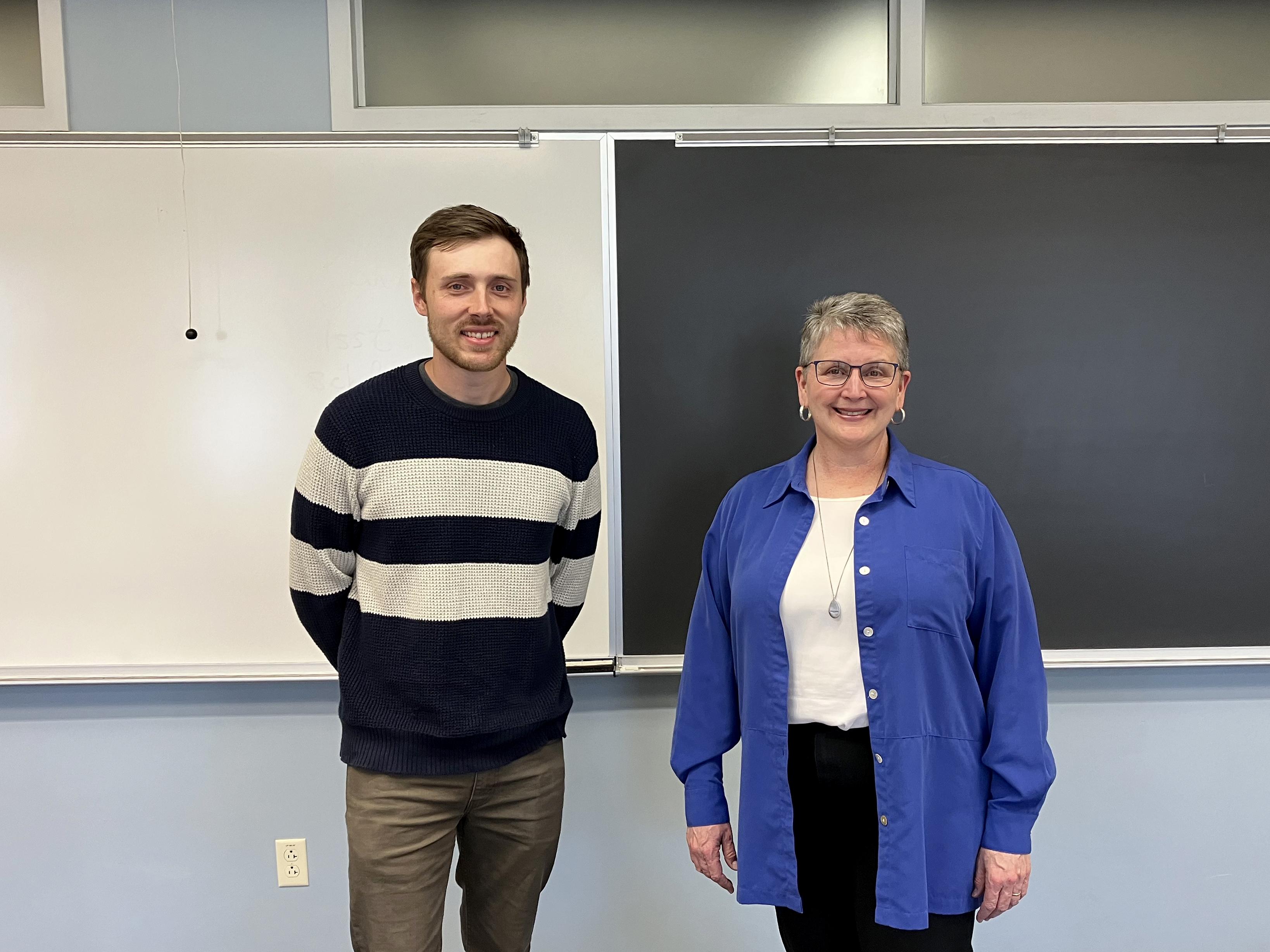SUNY Oswego faculty members Justin Mastrangelo and Sandra Bargainnier recently earned recognition as SUNY Online Teaching Ambassadors for 2022.
SUNY Oswego faculty members Sandra Bargainnier and Justin Mastrangelo recently earned recognition as SUNY Online Teaching Ambassadors for 2022, an award that acknowledges the hard work they invest into building fulfilling curriculums for online courses.
Theresa Gilliard-Cook, who is the senior instructional designer at Oswego, said that she nominated Mastrangelo and Bargainnier for the award not only for the content of their online courses, but also for their ability to interact with and build relationships with students despite challenges that online education can present to that process.
“These are just some of the qualities that some of the best online instructors use,” said Gilliard-Cook. “Sandy has been doing this for a very long time, and Justin, he’s been teaching online for a couple of years and every course he has developed with us has gotten better and better and better.”
SUNY Online Teaching Ambassadors are recognized as exemplary online educators who are enthusiastic and effective in online teaching, and who can be positive and strong advocates for online teaching in the SUNY community.
Bargainnier, a professor in Oswego’s Department of Health Promotion and Wellness, was pleased to receive the honor, which was only awarded to 33 educators across the SUNY system for this year.
“I’m very honored and humbled to win this award,” said Bargainnier. “I’ve taught for many many years full time and it’s just really nice to finally be recognized that I do know what I’m doing and I do it pretty well.”
Mastrangelo, an adjunct professor in Oswego’s Department of Art and Design, was similarly happy with the recognition.
“I think it’s a nice feather in my cap,” said Mastrangelo. “It’s a really honorable recognition that kind of goes beyond that initial footprint that I know that I have… it’s just nice to have that kind of light shined on me.”
Building rapport
Both faculty members pointed out the importance of online educators striving to reach students and forming a rapport with them despite the distance, both physical and figurative.
“Sometimes, it’s really difficult to get students engaged,” said Mastrangelo. “I try to make myself as accessible as I can and I kind of respond to students as quickly as I can. … I try to make myself as approachable as possible with the online format.”
“When students feel connected to the content at some level, then they’re typically more willing to really work hard to learn it,” said Bargainnier. “And, too, we have to show that we care. And that caring can be as simple as responding to their discussion post in a timely manner.”
This emphasis on instructor-student relations despite any challenges posed by digital interactions, Gilliard-Cook said, is a real strength of Oswego’s honorees, and is something that she believes other online educators should emulate in their own courses.
“They focus on the students, and they really work to build those relationships with the students regardless of the modality,” said Gilliard-Cook. “You will find your best online instructors, whether it’s throughout SUNY or at other institutions, when they can build that rapport with their students and the modality isn’t really in the way, those can be the most successful courses and the students are successful, or feel they’re more successful.”
Online education will continue to play an important role in reaching those students who may not be able to take courses at a more typical time, or who might not be able to come to campus for in-person courses.
“Online education is here to stay, and the stakes are higher as far as quality and accessibility.,” said Bargainnier. “I think it’s going to only grow and we need to be out in the forefront of that and be doing it very well, and have faculty that feel really comfortable doing it in a high quality manner.”
-- Written by Collin Knapp of the Class of 2023




